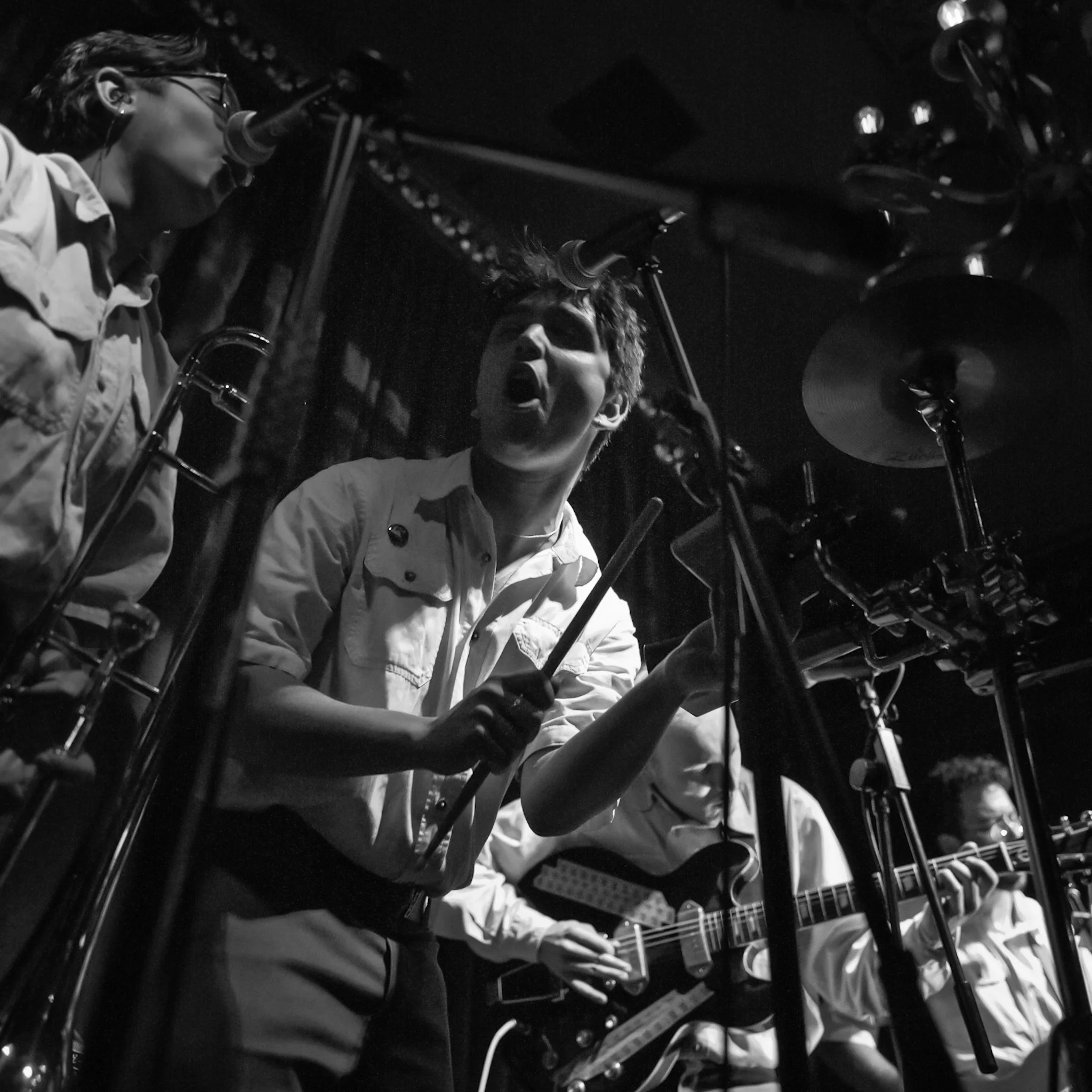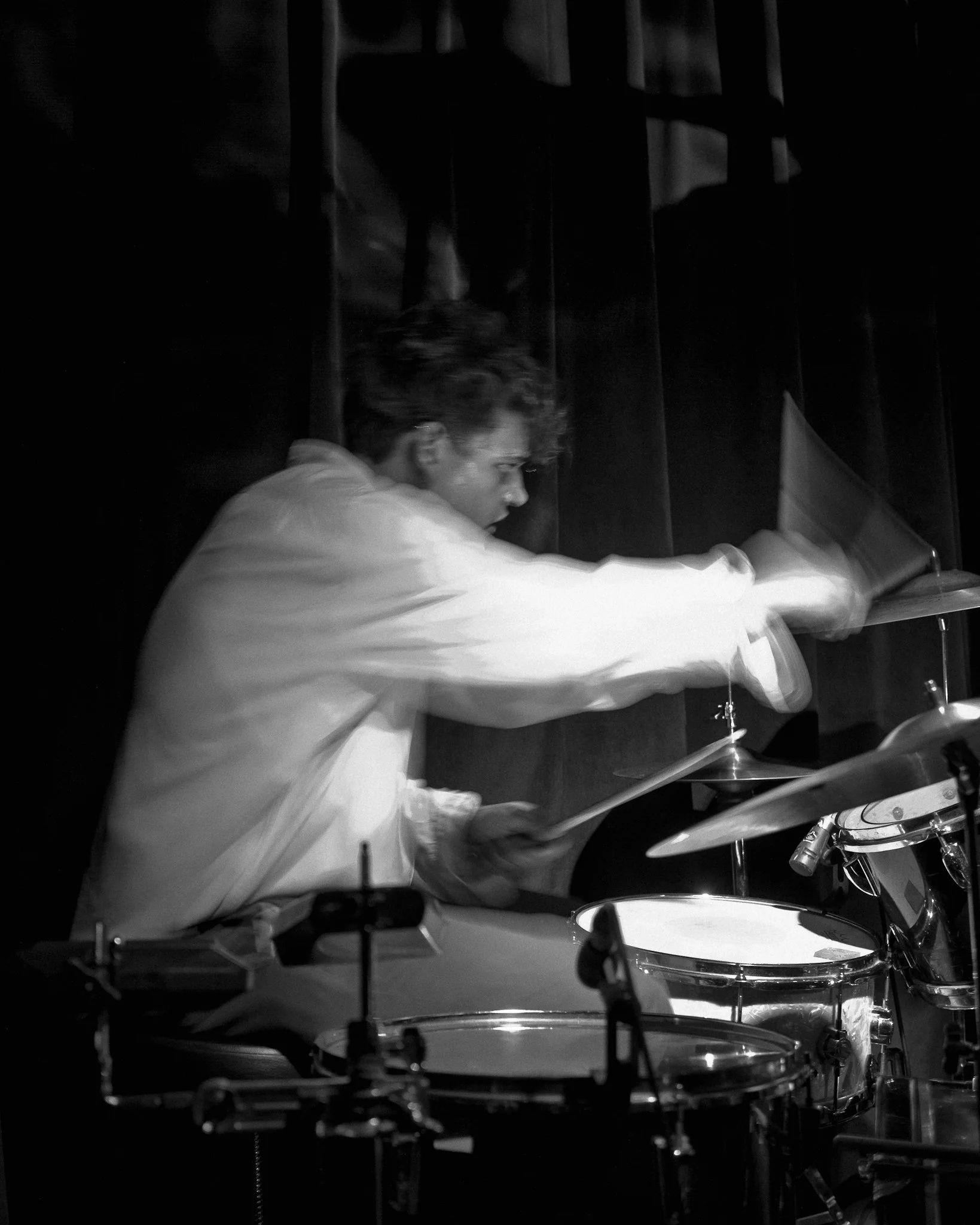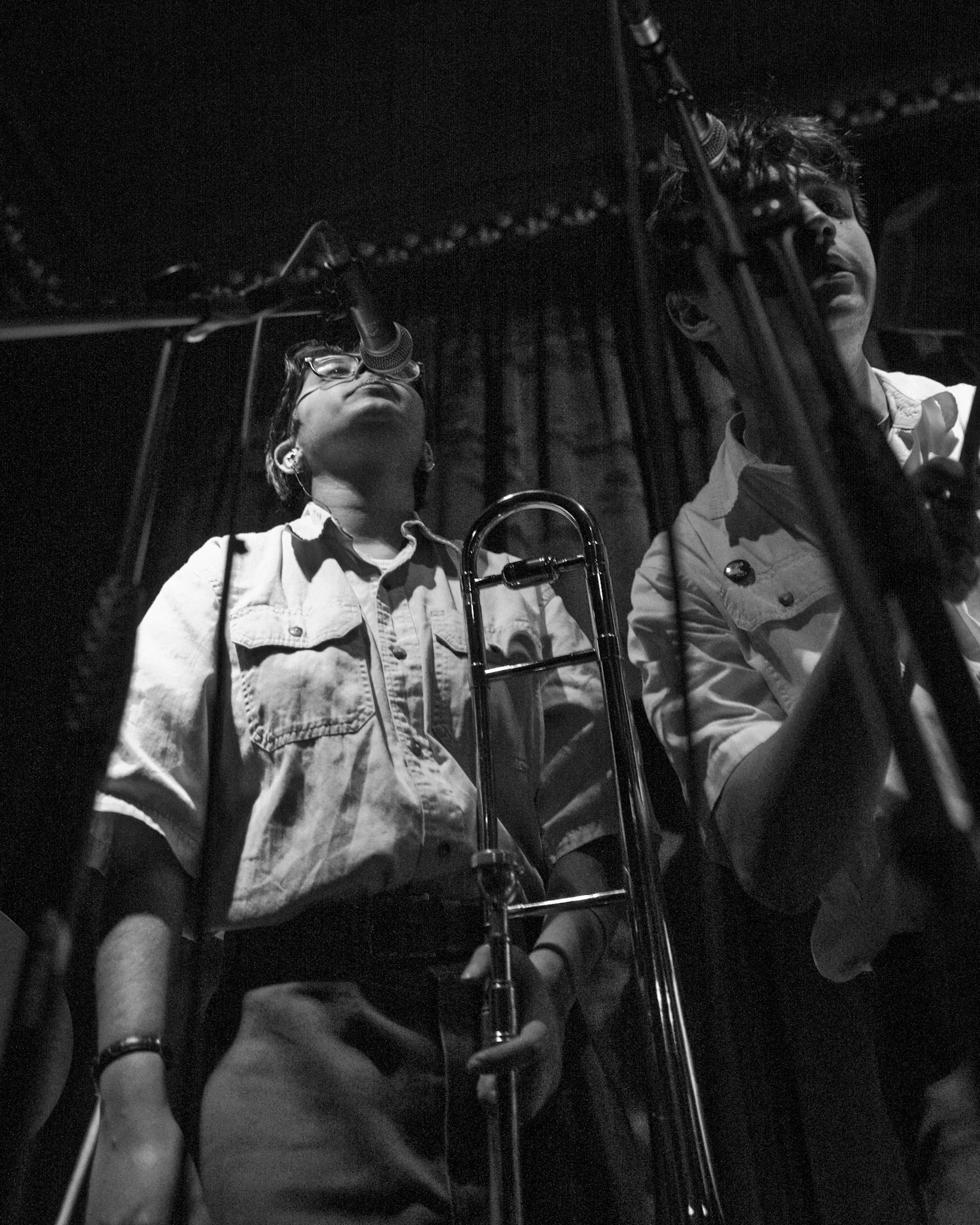The Superpower
There was a girl at the Tigers & Flies show in Manchester on Saturday who didn't want to be there. You could tell. She had that look - the one that says she'd agreed to attend under duress, keeping her boyfriend happy, mentally calculating how soon she could suggest leaving. She stood near the back, arms crossed.
Then something happened.
Between songs, she leaned into her boyfriend and whispered something. I was close enough to see her face change to sheer delight. ‘I really, really like these,’ she beamed.
This is a moment that matters. Not the whooping crowd up front. Not the friends of the band who already knew. This reluctant attendee, this person who walked in wanting to be anywhere else, converted in the space of three songs.
Let me tell you why that's significant.
In 1974, sociologist Mark Granovetter published a paper called The Strength of Weak Ties. His thesis was simple but revolutionary: the people who matter most in spreading new ideas aren't your close friends - they already think like you - but your acquaintances, the weak ties in your social network. These are the bridges between worlds.
That girl? She's a weak tie. And what happened to her in that upstairs room in Manchester is precisely what Malcolm Gladwell would call a ‘social epidemic moment.’
A Pattern Recognition Problem
Here's what you need to understand about live music in 2025. We're drowning in it. Seven bands played that night in Manchester. Seven. And across Manchester, across every city with pretensions to culture, there were dozens more shows happening simultaneously. The cognitive load is simply overwhelming.
So we develop filters. We decide in advance what we'll like. We attend under duress. We keep our arms crossed.
Tigers & Flies broke through that filter not through volume or spectacle but through something psychologists call ‘genuine affect display.’ The five people on stage - Arthur Arnold, Eddie Wigin, Arvin Johnson, Matteo Fernandes, Risha Alimchandani - were enjoying themselves. Not performing enjoyment. Actually enjoying themselves.
Research is clear on this. Genuine emotion is neurologically contagious in ways that performed emotion simply isn't. Mirror neurons fire. Limbic resonance occurs. The technical term is ‘emotional synchrony.’
The non-technical term is: you can't fake it.
The Quality Signal
After the show, the band sold vinyl at the merch table. Here's what's remarkable about that vinyl: there are no words on the sleeve. None. Not the band name. Not the title. Just artwork. The band's name appears only on the spine.
This is what economists call a ‘costly signal.’
The most credible signals are those that are expensive to fake. A peacock's tail. A university degree. A beautiful vinyl record pressed on heavyweight stock with a silk finish that doesn't tell you what it is.
This is confidence. This is a band saying: our music is good enough that we don't need to shout about it on the packaging.
There are only 100 copies.
This scarcity isn't artificial. This is a small independent label working with a band that includes a maths teacher and a creative writing student who works in a coffee warehouse. We aren't people with access to capital. We are people who believe their 8-track album is worth pressing 100 times on heavy vinyl at 45 RPM because the music demands that level of quality.
That's another costly signal.
The Superpower
But here's what mattered most. After the performance, people approached the band. Many people. Young people, mostly. They said how much they'd enjoyed the show. And then - and this is the detail that matters - they bought the record. Right there. Cash or card, at the merch table.
In an era where music is functionally free, where Spotify and YouTube offer unlimited access for the cost of attention, these people chose to spend £25.99 on vinyl.
Why?
Because what Tigers & Flies have is increasingly rare: they make you want to possess the thing itself. Not stream it. Not save it to a playlist. Own it. Hold it. Take it home.
The music is brilliant - angular post-punk with brass that functions as a narrative voice, rhythms that kick you in the bollocks, lyrics sharp enough to cut. But the brilliance alone doesn't explain the phenomenon.
What Tigers & Flies have discovered - probably accidentally, which is how all the best discoveries happen, is the formula for mattering in an age of infinite choice.
The Tipping Point
There were seven bands that night. It was clear which one was by far the best.
But ‘best’ isn't quite the right word. What Tigers & Flies were was infectious. That's the word that keeps recurring. Infectious energy. Infectious performance. Infectious joy.
In epidemiology, the term "R-naught" describes how many people one infected person will infect. For COVID-19, it was around 2.5. For measles, it's 12-18.
For Tigers & Flies, on this November night in Manchester, the R-naught was visible in real time. Every person who walked in skeptical walked out converted. Every person who came with a friend brought that friend into the fold. The girl who whispered to her boyfriend didn't just enjoy the music - she became an advocate for it, right there, mid-show.
After the show, the band stood around sharing old jokes and in-jokes. A real spirit of camaraderie prevailed. They were looking forward to more lives shows planned and recording their new album of songs in early 2026. They were, quite simply, enjoying each other's company.
This is their superpower.
And this - this moment, this band, this record - is the feeling of belonging that emerges when a group of strangers shares a genuinely authentic experience.
There are 100 copies of this record. As I write this, most of them are already gone. Bought at merch tables in Manchester, York, Brighton, London. Bought by people who were reluctant attendees. Bought by people who wanted the thing itself, not the stream, not the playlist.
If you're reading this and you haven't heard Tigers & Flies, you're standing at the edge of a social epidemic at the moment before it tips.
The question isn't whether you should listen to them and buy the record.
The question is: are you going to be part of the story that gets told later about when this band mattered, or are you going to be the person who heard about them second-hand?
The vinyl plays at 45 RPM. Loud and clear.
The girl who didn't want to be there? She's already decided.
Expanded Play — Tigers & Flies — Violette Records VIO-082 — 100 copies — Available now





